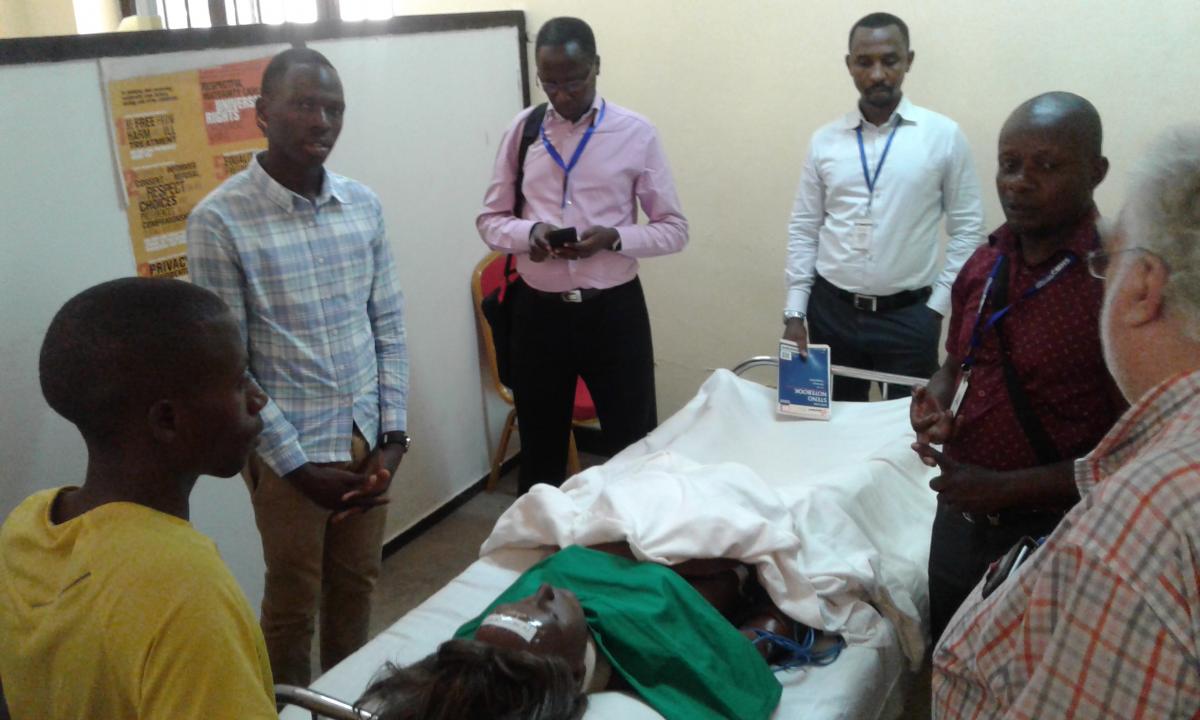Strenghtening Capacities within the Health sector through the Capacity Development Pooled Fund (CDPF) - First assessment
The overall vision of the Capacity Development Pooled Fund (CDPF) is to strengthen and develop capacities within the health sector in line with the Health Sector Strategic Plan and Rwanda’s Human Resources for Health (HRH) Strategic Plan.
CDPF contributes to enhanced quality outcomes in the delivery of health services. By choosing the modality of a basket fund, we aim to contribute to the health Sector Wide Approach enhancing the aid effectiveness environment through enabling pooled funding for capacity development initiatives. Capacity development is understood as “the process whereby people, organisations and society as a whole unleash, strengthen, create, adapt and maintain capacity over time” with capacity being defined as “the ability of people, organisations and society as a whole to manage their affairs successfully”.
CDPF is building capacity strategically by:
- Ensuring a coordinated approach to HRH planning across the sector, thereby strengthening the overall service
delivery capacity;
- Increasing the quantity of HRH through increased numbers of trained and equitably distributed staff at all levels;
- Increasing the quality of HRH, including improved productivity and performance of health workers;
- Increasing capacity to plan, develop, regulate, and manage HRH.
An alternative aid modality
The CDPF aims to offer an aid modality targeted at capacity development for Development Partners that are unable to contribute to Sector Budget Support and to function as entry point for a joint, coordinated and flexible financing mechanism that supports a national health sector programme using country systems.
The CDPF initially aimed to provide a long-term basket, with easy and flexible access to funds for priority activities in health sector capacity development.
A flexible pooling fund instrument
The CDPF focuses on approaches that identify training gaps and unmet training needs as defined in the HRH strategic plan. It targets specifically human capacities at the district level that face greater challenges than at the national level. Due to its flexibility the CDPF is also able to support other components beyond formal education and training of health professionals.
The CDPF should be able to adapt to continuous changes upon assessment and deliberation of a Steering Committee of all stakeholders. The day to day management of the fund resorts under the Single Project Implementation Unit of the Ministry of Health.
Lessons learnt for future initiatives
With December 2017 as the cut off point for the current CDPF budget and training portfolio, it is opportune to make an inventory of the lessons learned. An independent evaluation will be commissioned this year.
- The fund has not been able to secure funds beyond December 2017. Sustainability is at best doubtful. What is the value a pooling fund instrument in the current aid environment?
- Reform in the health sector as well as the education sector has
introduced new challenges for the management of the fund reducing transparency
and possibly effectiveness and efficiency. How do we make capacity building
integral and aligned to a national reform agenda?
- The fund has concentrated on increasing the quality and quantity of
existing health staff predominantly through extensive training programmes. This
consumed most of the fund leaving little opportunities for the flexibility as
intended in the original concept. In the context of sizeable and competing
needs, how do we maintain a vanguard concept and retain flexibility?
- Coordination between the Ministry of Health Technical Work Group for HRH
(responsible for strategy) and the fund was not optimal and mutual
participation was not evident. Specifically discussions on considering the
absorption capacity of the current establishment and recurrent cost
implications suffered. This necessitated e.g. ex-post discussions with the
Ministry of Public Service and Labour for placement and absorption of thus
trained cadre. Are there lessons to be learned to increase the quality of the
health sector policy debate?
Latest news from this project
No news

